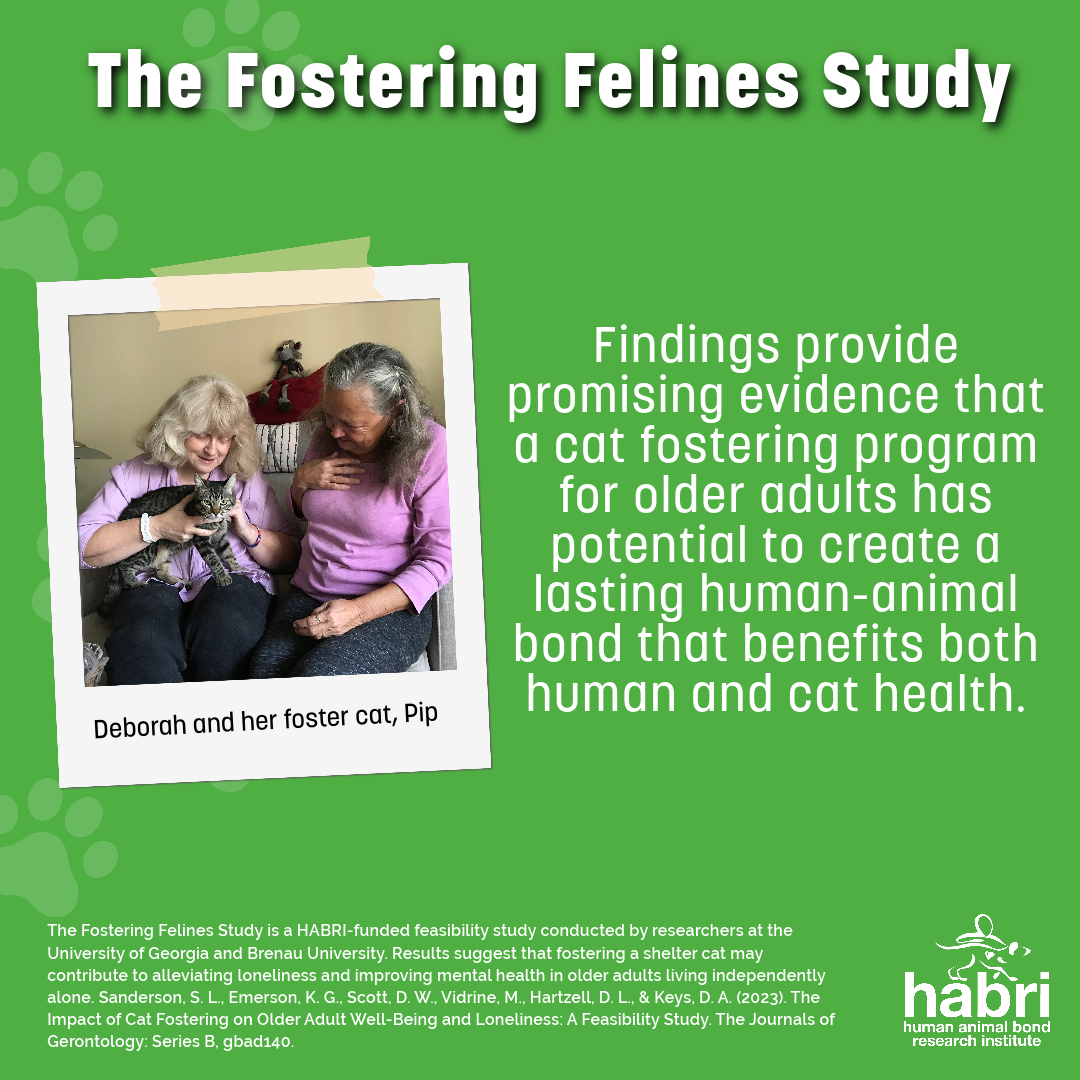
A Brenau University associate professor took part in a recent study that showed fostering a shelter cat may improve mental health and reduce loneliness in older, independent adults.
Maureen Vidrine, associate professor in the Mary Inez Grindle School of Nursing, was brought on to the University of Georgia study to provide an ongoing assessment of the individuals’ eligibility and well-being during the study.
“Findings from this feasibility study reveal that when adjusted for physical health, loneliness scores were observed to significantly decrease at the four month mark after the cat fostering began,” Vidrine said. “A similar four month improvement that approached statistical significance was observed for mental health. Almost all – 95.7% – of the final study participants decided to adopt their foster cat at the completion of the study.”
The study focused on adults older than 60 who were living independently in the community. The 29 participants fostered an indoor-only cat of their choosing from a local shelter for 12 months. Participants engaged in routine check-ins and were provided pet essentials like food and veterinary care. Of the participants, four voluntarily returned their cat before the four month mark and two were removed from the study.
The study also found more cats were more likely to be adopted after fostering when barriers related to pet care were reduced. That included supplying cat food and litter, basic health care, like spay/neuter, deworming, flea treatment and microchipping, and education about cat care and ownership.
Vidrine said research like this benefits the community, and supports Brenau’s healthcare programs.
“Higher education institutions elevate conversations and promote exploration and inquiry at every level, and this is one small contribution to that discourse,” she said. “My fondest wish is that potential students, supporters, students, alumni and faculty will find this work inspiring in some small way.”
The research team was led by Dr. Sherry Sanderson, DVM, Ph.D., associate professor at the University of Georgia College of Veterinary Medicine.
“Our results show that by removing some perceived barriers to pet ownership, including pet deposit fees, pet care supplies and veterinary support, we can not only help older adults live healthier, happier lives but we can also spur the fostering and adoption of shelter cats into loving homes,” Sanderson said.
Vidrine encouraged students interested in research to take the chance.
“Research, publication and scholarly presentation retains an aura of unattainability, of mystery – it’s something ‘other people do,’” she said. “However, I am living proof that cultivating your passions and living and sharing your truth will lead to positive experience and opportunities. This requires a willingness to be vulnerable to some degree and to really ‘walk the talk’ of lifelong learning.”
Vidrine was connected to the study by Brenau Assistant Professor of Psychology Blaine Schultz, who knew about the request by the UGA Institutional Review Board for a team member with Vidrine’s skillset.
“Almost every stage of my career was nurtured by people who were aware of my talents and interests,” she said. “When ‘human resources’ are received by an individual who is sufficiently self-aware, authentic and open to possibilities, almost anything is possible!”
Vidrine has previously worked in several programs related to equine therapy, including co-founding Horse Time, a non-profit, community-based equine-assisted therapy program in Covington, Georgia. Her work with horses led her to her role at Brenau in 2007, when faculty were conducting a study on the lived experience of equine-assisted psychotherapy in domestic violence survivors.
Free access to the full study can be found here.

